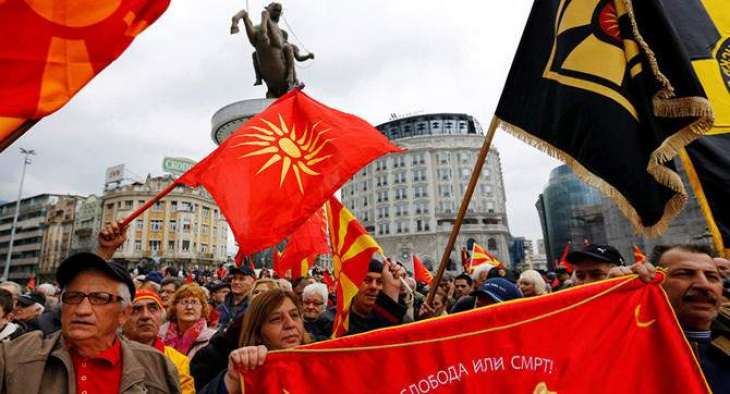Macedonia's consultative referendum to change the country's name to the Republic of North Macedonia was held impartially and democratically, the OSCE Office for Democratic Institutions and Human Rights international observers said Monday in a statement.
MOSCOW (Pakistan Point News / Sputnik - 01st October, 2018) Macedonia's consultative referendum to change the country's name to the Republic of North Macedonia was held impartially and democratically, the OSCE Office for Democratic Institutions and Human Rights international observers said Monday in a statement.
On Sunday, the referendum on the deal to change the name of Macedonia, officially known as the Former Yugoslav Republic of Macedonia, to the Republic of North Macedonia was held. According to the State Election Commission, 91.46 percent of voters supported renaming the country under the deal with Greece, while 5.65 percent voted against. However, the referendum failed to secure the 50 percent turnout needed to make the vote valid.
"While the legal framework did not cover all aspects sufficiently, the 30 September Referendum was administered impartially and fundamental freedoms were respected throughout the campaign. The election administration was collegial and met deadlines, but was not always fully transparent in its work," the statement read.
The observers added that media reports managed to cover a diverse range of views about the referendum, despite problems related to the absence of organized boycott campaigns or official and active campaigns by people who were against the renaming.
The referendum was held after the Greek and Macedonian foreign ministers signed an accord in June, agreeing to rename the Former Yugoslav Republic of Macedonia to the Republic of North Macedonia. The agreement came as a solution to the long-standing dispute over the use of the name "Macedonia," which is also the name of a region in Greece.
If the country does change its name, it will allow Macedonia to pursue becoming a member of the European Union and NATO, because prior to the agreement, the process was blocked by Greece.




